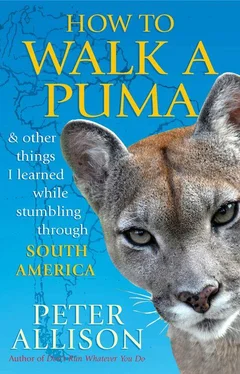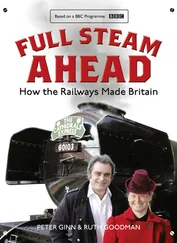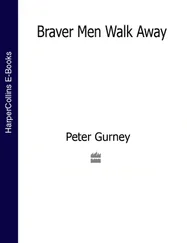By now, despite some sunburn and Thema’s uncanny ability to wait until people had just begun to doze off before hitting us with a phrase of an unknown song, I was more relaxed than I had been in years. South America was teaching me that it wasn’t just adventure I had given up to sit behind a desk. Feelings of peace and contentment had become so foreign to me during the last seven years in Sydney that at first I resisted them, in case I became accustomed to them and was heartbroken once they were taken away again. But the river won, and by the fourth day I was little more animated than a carrot, but surely much happier. Having Lisa to share it with made it even more special, and she whispered in my ear one night that she was glad we came on the trip, and even more that we’d been on the same bus all those months ago in Patagonia.
•
On the fifth day, though, everything changed. Somehow we had made up the lost time from our late arrival and Cesar promised that we would make it to our destination, the small jungle town of Rurrenabaque, by nightfall.
‘Lah, lah, lah,’ Thema responded flatly to the news.
‘Oh, come on!’ I protested. ‘That’s not even a song.’
Despite the pleasure we had all taken in the trip we now began fantasising about a shower, a bed that didn’t deflate during the night, beer, and fatty food like pizza (Reina’s impressive earlier fare had dried up and our more recent meals had been variations on fried plantain—which, without condiments, we discovered to be as tasty as an old sponge).
The scenery, which had been subtly changing since our trip began, gave way dramatically, with sheer cliffs soaring on either side of us, their sides worn smooth from years of the river’s work. By now the water was clear, and at last I saw some herons, standing on rounded ledges, staring intently at the river, waiting to spear any fish that ventured too close to them.
Then just as suddenly we emerged from the canyon, and the river fanned out to the greatest width we had seen so far, perhaps two hundred metres across. The currents and countercurrents this change set up made the surface a sequin-dazzle of ripples, and our little raft jolted as if being dragged over cobbles.
A sideways thrust suddenly caught us and despite hard paddling from Abel and some desultory stirs at the back from his son, the raft was dragged close to the bank. A visible current ran against the river’s flow, and a line as definite as lane markings on a highway showed where the two currents met each other. The circular span of spinning water covered almost the whole width of the river, and there was no way of avoiding it. Soon we were heading back upriver, until the current we were trapped in pushed against the rocks and shot us back in the direction of Rurrenabaque. Yet this was no cause for celebration, because we were heading towards far more turbulent water. My heart thumped as I realised we were going to be sucked into the dangerous-looking whirlpool ahead of us.
The front left corner of the raft dipped down as we hit the swirl, water rushing up and over Abel, then onto the Minke, myself and English Nick. Bucking and bobbing, the raft spun round in a sickening circle. Despite being drenched, Abel kept his rowing regular and strong. As we spun faster and deeper into the whirlpool I clutched at my smaller backpack like it was my baby. My larger backpack could be sacrificed but this one contained all my most treasured possessions—a camera, my binoculars and bird books.
The whirlpool abruptly spat us out, soaking everyone at the back, then the raft was caught once more in the cross-current and we shot back in the direction we’d come. Again, Abel leant hard into his strokes. Glancing back I saw Captain Useless dipping his paddle as though he were stirring tea and didn’t want it to slosh out of his cup.
The whirlpool had an inexorable pull, and after one lap past the bank we were sucked straight back into the centre, sinking deeper, the water coming up to my waist and grabbing me like desperate hands, pulling and tugging.
‘Hold on,’ I shouted, as much to myself as anyone else, as we spun deeper into a chaos of foam and turgid water. The stoic Abel kept paddling, somehow not flung from the raft despite having no handhold.
A sudden savage lurch saw the paddle ripped from Abel’s grasp and accelerate past us into the spiral of water. I looked back at Abel’s son, who was similarly empty-handed, his paddle also ripped away, or perhaps thrown away for fear of having to use it.
‘Without a paddle!’ I shouted, laughing hysterically despite the danger we were in. The whole raft angled sideways now, leaning into the vortex, and while it wasn’t quite a science-fiction waterspout with a huge cavity that could swallow us whole, I did imagine that when we hit its middle we’d all be sent flying; in that sort of water even the Minke with her fins for feet might struggle.
The rear of the raft dipped, touched the middle; we spun, and somehow crested out of the turbulence, back into the mad looping current again. We could maybe paddle for the bank, using our arms and whatever tools we had, then portage the raft until we were past the vortex, but Abel and Cesar gave no orders.
‘A paddle!’ the Dutchman shouted, and we turned to see it bob to the surface, tantalisingly close. ‘I’ll get it,’ he added, making as if to dive in.
‘No! You’ll die,’ shouted the Minke, causing his girlfriend to clasp a vice-like hand on his arm.
Attached to the raft by twine was a loose tube which we’d used as a dinghy of sorts when someone wanted off the main vessel. The Minke offered to get into it and scull her way to the errant oar, but Abel had a better idea, and reeled the tube towards himself, then threw it like a life ring, snaring the paddle and drawing it in.
At the same time we were heading back into the whirlpool. Abel leant deeper into his strokes, and those on the same side as him used their hands and even a book to paddle along with him. The sucking noise of the whirlpool grew louder, and we drew closer, angling in despite the grunts of effort aboard; then the front of the raft nudged the edge of the maelstrom, but this time it did not dip, and instead we sailed past, the circle broken, on the way to Rurrenabaque.
‘My God, did we almost die then?’ came the voice of someone from the back.
‘Yep,’ I answered, still looking resolutely ahead, still holding the raft so tightly it’s amazing I didn’t pop a tyre tube. A pulse thrummed in my ear and I knew that I was grinning, feeling a thrill usually reserved for some wildlife encounter. ‘Makes you feel alive though, doesn’t it?’
‘Loony,’ said the Minke, leaning over to peck my cheek.
‘Oh yes,’ I thought, ‘loony for sure, but alive. Alive!’
Drunk with relief we laughed through the last leg, cheering the sun on as it sank and threatened to break Cesar’s promise of arrival by sundown, then erupting into cheers when the town came into sight as the barest solar sliver hovered over the river’s surface.
‘Nicely done, Cesar, nicely done,’ I said, still buoyant in the adrenal afterglow, and not even minding when, to celebrate our arrival, Thema burst into song.
One Hundred Ways to Bleed

After our miraculously punctual arrival in the small jungle town of Rurrenabaque, we spent two days luxuriating in warmish showers and well-stocked bars. Our next adventure—again a watery one—would set off three hours down yet another rattling South American road.
Old hands now, I turned to Lisa as we departed another cramped minivan, with a different group of travellers this time, and asked, ‘Are my teeth loose?’
Читать дальше













